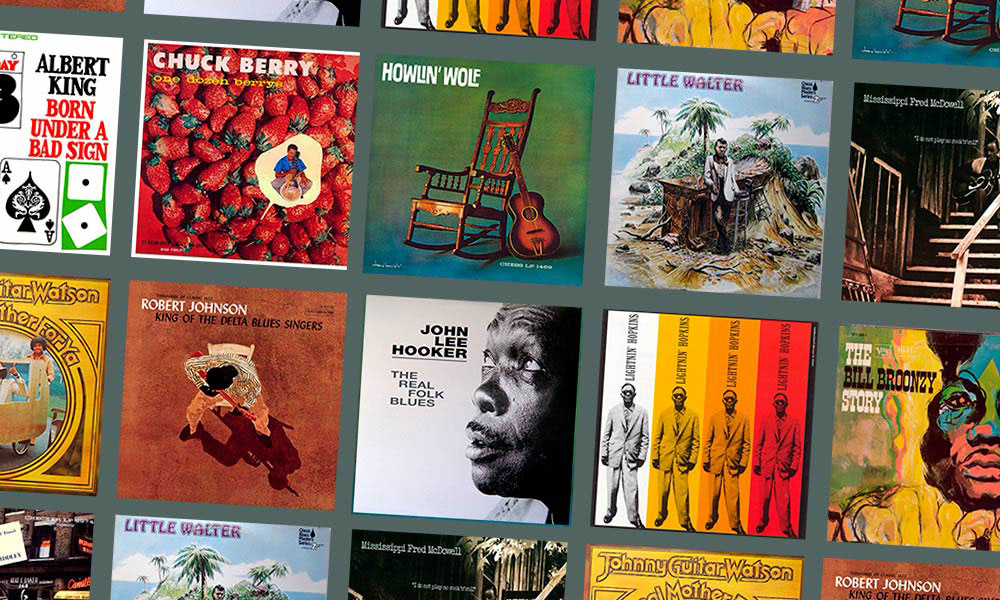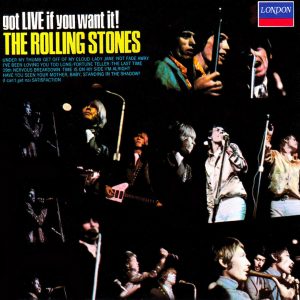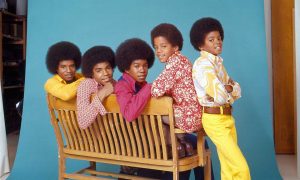We live in an age where the consumption of music is increasingly defined and dominated by digital music, and because of that the importance of album covers seems to be diminishing – at least for a generation where streaming individual tracks rather than a complete set of songs seems a more desirable way to listen. But with the miraculous revival of vinyl – whose sales have increased exponentially over the last couple of years – it’s feasible that album art will come into prominence again, whether that be for hip-hop, rock or the often overlooked world of blues album covers.
Let’s face it, you can’t beat a good album cover. Whether good, bad, beautiful or ugly, they tell a story. They have the power to invoke, inspire, intrigue and fascinate. And they can say a lot about an artist. Indeed, a good cover picture, whether as a literal visual statement, expressing a concept, or functioning as a symbolic cipher, can convey in an instant what mere words will often struggle to communicate. In the early years of the LP, album covers were often put together with little thought, but as time went by and the album concept evolved, artwork became increasingly sophisticated as marketing became an important selling tool for record companies.
Unlike pop artists, the majority of blues musicians have traditionally never been actively preoccupied with image, preferring to make music their priority. But that doesn’t mean to say that blues singers never cared about, or were indifferent to, the way they presented themselves on their album covers. Indeed, there have been some wonderfully memorable and eye-catching blues album covers, and here are a dozen of them…
Robert Johnson: King Of The Delta Blues Singers (1961)
Given the mystique surrounding Johnson’s short life (legend has it that he made a Faustian pact with the devil and was murdered), it’s perhaps fitting that on the first ever compilation of his work he was represented by a painting rather than a photograph, because it underlined his growing mythical status. Burt Goldblatt’s simple but powerful portrait – an unusual overhead shot defined by vibrant colurs, strong outlines, and an effective chiaroscuro-like blend of sunlight and shade – is rightly considered an iconic blues album cover.
Bill Broonzy: The Bill Broonzy Story (1961)
Originally a 5LP set released on Verve, this Bill Broonzy retrospective, The Big Bill Broonzy Story (which featured him singing and also talking about his life), like the Robert Johnson album, was issued during the folk and blues revival of the early 60s. It was also one of a number of blues album covers that boasted a painting for its artwork: a vivid and almost garish portrait of the blues maven’s face etched by David Stone Martin, a prolific illustrator of album covers in the 50s and 60s. By using a painting rather than a photograph, the artwork underlined Broonzy’s historical importance, making him a larger-than-life figure.
Mississippi Fred McDowell: I Do Not Play No Rock’n’Roll (1969)
Famed for his searing bottleneck guitar lines, McDowell was 63 when he recorded this album, which, significantly, witnessed him switching from an acoustic to an electric guitar. Its title a feisty declaration of artistic independence, I Do Not Play No Rock’n’Roll boasted a stark, sepia-toned front cover photo of McDowell playing guitar on a back porch step, reflecting the rawness and brutal honesty of his music.
John Lee Hooker: The Real Folk Blues (1965)
Having scored his first hit in 1949, gruff-voiced John Lee Hooker was a bona fide blues veteran when he recorded this LP for Chess. Its cover – a monochrome, side-on shot of the front half of Hooker’s face, his eyes looking upwards – is a deceptively simple but powerful image, conveying the unadorned essence and visceral rawness of Hooker’s music.
Albert King: Born Under A Bad Sign (1967)
“If it wasn’t for bad luck, I wouldn’t have no luck at all,” laments the influential electric bluesman on this album’s memorable title song, whose theme of being cursed inspired one of the great blues album covers. Designed by Loring Eutemey, it was composed of images associated with bad omens and superstition (including a black cat, a skull and crossbones, and a Friday 13th calendar page). The cover’s bright, bold imagery matched the urgent vitality of King’s music.
Howlin’ Wolf: Howlin’ Wolf (1962)
To the uninitiated, an album by someone with a scary, lupine-inspired name, Don Bronstein’s seemingly innocuous still life-style painting of an empty rocking chair and guitar would perhaps seem like an odd juxtaposition. And unlike many blues album covers, it didn’t reflect the music either, which included Howlin’ Wolf’s hyper-charged takes on Willie Dixon’s libidinous tales “The Red Rooster” and “Back Door Man.” What the artwork did symbolize, though, was the elemental artistic purity of Wolf’s music.
Lightnin’ Hopkins: Lightnin’ Hopkins (1959)
You get four Lightnin’ Hopkinses for the price of one on the eye-catching front cover to the bluesman’s only LP for Folkways. Anticipating Andy Warhol’s influential pop- art style, designer Ronald Clyne (who created over 500 folk and blues album covers for Folkways) presents a quartet of suited and shaded Hopkinses depicted in colors of increasing intensity from left to right. It captures the chameleonic personality of a musician who was renowned for his alcohol-fueled mood swings.
John Mayall: Blues Breakers With Eric Clapton (1966)
While the rest of the band’s expressions range from bored to pensive and self-conscious, a preoccupied Eric Clapton is caught reading a copy of the Beano comic on what is a delightfully informal and naturalistic shot for a blues album cover. The band’s blatant disinterest in the photo shoot suggests that they would rather establish an identity via their music rather than the visual medium. The backdrop of a graffiti-adorned wall also emphasized the urban grittiness of their sound.
Johnny Guitar Watson: A Real Mother For Ya (1977)
In the late 70s, Watson, pimped out in Superfly-style regalia, married blues with a disco-funk beat and created one of the genre’s most outrageous personas. This hilarious anomaly among blues album covers offers a literal interpretation of a common US slang expression, depicting Watson’s mother pushing him in a pram converted into a pimp mobile. It showed that Watson didn’t take himself too seriously and wasn’t afraid to be the butt of a good joke.
Bo Diddley: Have Guitar Will Travel (1960)
Photographed carrying his custom-built rectangular guitar astride a matching red-and-white scooter with his name emblazoned on the side, the artwork to this LP, released on Chess’ Checker imprint, crystallised the idiosyncratic flamboyance of the Mississippi bluesman born Ellas McDaniel.
Chuck Berry: One Dozen Berrys (1958)
Some blues album covers are memorable because they are awful and clearly bereft of artistic endeavor. You decide if that’s the case with Chuck Berry’s 12-track second LP for Chess. Its combination of an image of strawberries (with a small picture of Berry superimposed on top) together with a bad pun for a title certainly grabs the eye. A classic example of when bad is good.
Little Walter: Little Walter (1976)
Who knows what was going through the head of illustrator Nick Caruso when he devised the cover to this 2LP Chess retrospective of harmonica genius “Little” Walter Jacobs? Perhaps he was implying that it should be considered a desert-island disc. Having said that, the picture does capture the desolate, lonesome quality in Walter’s plaintive voice and wailing harmonica.




